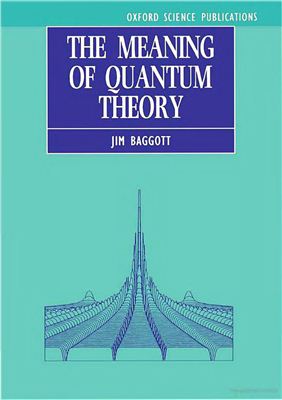Oxford University Press, 1992, 230 pages
Why is quantum theory so difficult to understand? In this book, written for both undergraduate and graduate students of chemistry and physics, the author looks at the continuing debate about the meaning of quantum theory. The historical development of the theory is traced from the tu of the century through to the 1930s, and the famous debate between Niels Bohr and Albert Einstein. The book examines in detail the arguments that quantum theory is incomplete, as made by Einstein, Boris Podolsky, and Nathan Rosen; the development of Bell's theorem; and crucial experimental tests performed in the early 1980s. Alteative interpretations - pilot waves, quantum gravity, consciousness, and many worlds - are described in the closing chapter.
Why is quantum theory so difficult to understand? In this book, written for both undergraduate and graduate students of chemistry and physics, the author looks at the continuing debate about the meaning of quantum theory. The historical development of the theory is traced from the tu of the century through to the 1930s, and the famous debate between Niels Bohr and Albert Einstein. The book examines in detail the arguments that quantum theory is incomplete, as made by Einstein, Boris Podolsky, and Nathan Rosen; the development of Bell's theorem; and crucial experimental tests performed in the early 1980s. Alteative interpretations - pilot waves, quantum gravity, consciousness, and many worlds - are described in the closing chapter.

